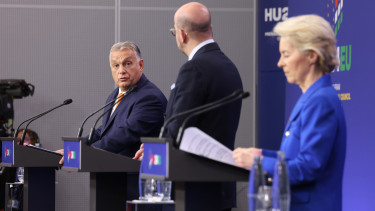Out with the old, in with the new: adapting the EU’s fiscal rules for the challenges ahead

Last year, the European Commission set out its vision for the most comprehensive reform of the EU’s fiscal rules since the economic and financial crisis. These orientations followed a series of economic shocks that have demanded rapid, forceful and, in some cases, unprecedented policy responses. To give governments the necessary breathing space to respond to the seismic economic and social challenges presented by COVID-19 and Russia’s war of aggression against Ukraine, the EU temporarily relaxed its fiscal rules.
This approach worked. Due to the economic support measures at national and EU level, millions of people kept their jobs and business remained open.
Of course, this success should not blind us to some of the serious consequences of a prolonged period of fiscal support. Public debt has increased, in some cases to very high levels.
This now needs to be addressed. Sound public finances are a prerequisite for sustained economic growth.
By building buffers in good times, we can better respond to future crises.
Sound management of public finances is even more crucial given the economic and budgetary outlook for the decade ahead. We face a range of common challenges. The green and digital transitions and the need to bolster Europe’s security capacity will necessitate significant and sustained public investments. After a decade of ultra-low interest rates, financing conditions are likely to be less favourable in the years ahead. The impact of ageing on public finances is becoming increasingly visible.
Credible fiscal rules, coupled with a commitment to abide by those rules and appropriate tools to ensure their enforcement, are essential to ensure sound public finances across the EU.
That is why the Commission has put forward concrete ideas on what these rules could look like, based on a number of key principles.
Firstly, a one-size-fits-all approach does not work. Fiscal situations, challenges and economic prospects vary greatly across the EU’s 27 members. Rules that establish the same targets and require the same pace of fiscal adjustment for all are neither optimal nor widely acceptable. The new framework will differentiate between countries by taking into account their public debt challenges in order to set an appropriate fiscal adjustment path.
Secondly, national ownership is crucial. Medium-term fiscal and economic strategies that ensure debt sustainability should be designed by each Member State, within a clear and transparent EU framework.
Thirdly, reforms and investment are both essential. Some EU countries with the highest levels of public debt have consistently delivered budgets with low primary deficits. However, debt levels have remained stubbornly high as a result of lacklustre growth. The implementation of reforms and investments designed to boost growth must, therefore, be part and parcel of any serious debt-reduction plan.
Finally, rules require enforcement. A lack of respect for fiscal rules and their weak enforcement has been a common criticism. For rules to work and to be enforceable, they must be realistic, credible and owned by all. The Commission’s proposals seek to achieve a new trade-off: simpler rules and more realistic paths of fiscal adjustment coupled with a stricter and clearer enforcement regime.
The EU is now engaged in a debate on the orientations proposed by the Commission at the end of 2022.
It is essential for the stability and prosperity of the EU to agree on a revised fiscal framework. Now is the time.
THIS IS 'ON THE OTHER HAND', PORTFOLIO'S OPINION COLUMN.
This article reflects the views of the author(s), which do not necessarily reflect those of the Portfolio editorial team.
Cover photo: Dursun Aydemir/Anadolu Agency/Getty Images








